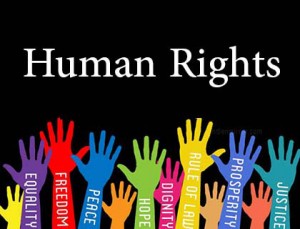
Human Rights WatchThis submission addresses issues related to articles 10, 11, 13, and 16 of the convention.
- Property Rights of Widows (article 16)
In 2017, Human Rights Watch documented the vulnerabilities and human rights abuses that widows in Zimbabwe face in relation to their property rights. Widows in Zimbabwe are routinely evicted from their homes and land, and their property is stolen by in-laws when their husbands die.
Many widows who decide to pursue legal action described how they face insurmountable obstacles defending their property or taking legal steps to reclaim it. Fending off relatives while mourning their husbands and selling off productive assets, like cattle, to pay lawyer and court fees as well as transportation were just some of the challenges. Once in court, widows said they were at a disadvantage without an official record of their marriage if it was a customary union. Courts typically look to the in-laws – the very people who stand to gain – to confirm the marriage, putting widows at the mercy of their husband’s family.
In 2013, Zimbabwe adopted a new constitution that provides for equal rights for women, including for inheritance and property. In practice, however, existing laws continue to apply only to widows in officially registered marriages. Estimates are that most marriages in Zimbabwe are conducted under customary law and are not registered, so, in effect, these laws afford no protection from property-grabbing relatives.[1]
We encourage the Committee to pose the following question to the government of Zimbabwe:
- What is being done to ensure widows, particularly those in rural communities, have meaningful access to legal remedies to protect their rights to property and other related rights in cases of unlawful property or inheritance grabbing?
We encourage the Committee to make the following recommendations to the government of Zimbabwe:
- Commit to implementation of the constitution and national laws for widows’ equal inheritance rights by amending laws and regulations and repealing all laws that violate women’s property rights under domestic or international standards, including African regional standards.
- Install a system to ensure all existing and new marriages, including customary unions, are officially registered in a central registry with digital records that are accessible throughout the country as proof of marriage.
- Allow the posthumous recognition of marriages and customary unions and allow widows to choose the witnesses to confirm their marriage.
- Engage in public awareness campaigns to prevent unlawful property grabbing and inform widows of their inheritance rights.
- Discrimination in Education against Pregnant Girls (article 10)
Over 24 percent of adolescent girls and young women ages 15-19 have given birth in Zimbabwe, according to the United Nations Population Fund. Almost 19 percent are pregnant as a result of early marriage.[2] Reports indicate that over 6,000 girls dropped out of school due to early and unintended pregnancies in 2018.[3]
Zimbabwe requires pregnant students to leave school once they are found to be pregnant but provides avenues for them be readmitted–sometimes in a different school–after giving birth, provided the girl’s parents or guardians request such readmission.[4] Practices at the school level vary especially regarding the length of time the student should be absent from school and the processes for withdrawal and re-entry. Some conditions for re-entry are difficult for students to meet.[5]
In February 2019, Zimbabwe first introduced in Parliament the Education Amendment Bill, which guarantees the equal realization of the right to education for all in Zimbabwe. The bill includes a provision that guarantees that no child shall be discriminated against because of pregnancy. However, this is the only reference, with the bill lacking more provisions that specifically protect the right to education of pregnant students and those who become parents while at school.[6] The bill has since faced extensive delays and is still at the first reading stage in Parliament.
We encourage the Committee to pose the following questions to the government of Zimbabwe:
- What legal and policy steps have you taken to ensure that pregnant students are able to return to school without barriers?
We encourage the Committee to make the following recommendations to the government of Zimbabwe:
- Provide guarantees in the Education Amendment Bill that no child shall be expelled or denied the right to education by any educational institution on account of pregnancy, and expedite the passage of the bill into law.
- Adopt a human rights-compliant continuation policy that clarifies the government’s obligation to ensure pregnant and parenting learners of school-going age continue primary and secondary school without barriers or mandatory dropout periods.
- Introduce formal flexible school programs, including evening classes and part-time classes, for learners who are not willing or able to attend full-time classes, and ensure students receive full accreditation and certificates of education upon completion.
- Include pregnant learners and parents in programs that target students at risk of dropping out of school, and ensure targeted programs include measures to provide financial assistance, counselling, and school grants to at-risk students, and the distribution of inclusive educational materials and sanitation facilities, including menstrual hygiene management kits in schools.
- Expand options for childcare and early childhood development and education centers for children of adolescent mothers so those of school-going age can attend school.
- Facilitate access to sexual and reproductive health services, including comprehensive sexuality education at school and in the community.
- Child Marriage (article 16)
Over one-third of girls in Zimbabwe marry before the age of 18 and 5 percent of girls marry before they turn 15, according to the country’s most recent Multi Cluster Survey (MICS).[7] One in five adolescent girls ages 15 to 19 are married or in a union to a partner who is 10 or more years older.[8] Child marriage often ends a girl’s education, can expose her to domestic violence as well as potentially pose grave health risks from early childbearing and HIV.
In November 2015, Human Rights Watch interviewed women and girls affected by child marriage in six provinces of Zimbabwe. Our research found that Zimbabwe has conflicting legal provisions on the minimum age for marriage. Zimbabwe’s constitution does not expressly prohibit child marriage, and a bill to outlaw it is currently at the second reading stage in Parliament.
Some married girls and women interviewed by Human Rights Watch had experienced violence such as beatings or verbal abuse from their in-laws or other relatives. Nearly all said their husbands had abandoned them, leaving them to care for children without financial support. Several described mental distress and suicidal feelings as a result of their situation.
Many girls said they dropped out of school because their families could not afford school costs. Nearly all girls whom Human Rights Watch interviewed were not able to continue their education after marriage, either because of their financial situation, their husband would not permit it, or they had to care for a baby. In addition, many indigenous apostolic churches forbid girls to continue education after marriage. Evangelical groupings which mix Christian beliefs with traditional cultures have approximately 1.2 million followers across the country.
In most cases that Human Rights Watch documented, girls had no comprehensive sexuality education before they became pregnant or married. The government’s national school curriculum does not include a comprehensive sexuality education program.[9] Many Zimbabweans fear that providing young people with contraception contributes to promiscuity, and many indigenous apostolic churches actively discourage use of contraception.[10]
In January 2016, Zimbabwe’s Constitutional Court declared the practice of early marriage unconstitutional and set 18 as the minimum marriage age for girls and boys. In March 2016, it was announced that the government was developing laws to make it a criminal offense to pay lobola (bride wealth) for girls under age 18.[11] In 2017, the government published a draft bill that seeks to harmonize marriage laws in Zimbabwe. The bill is currently at the second reading stage in Parliament after receiving non-adverse reports from the Parliamentary Legal Committee. The bill provides that the minimum age of marriage is 18 years. It extends this protection to both unregistered customary law marriages and civil partnerships, which protects against attempts to bypass the law by people avoiding formal marriages. The bill also explicitly makes it an offense to marry, pledge or betroth children into an early marriage.[12] Further, in December 2018, the National Action Plan (NAP) and Communication Strategy Against Child Marriages was launched, which seeks to accelerate efforts towards ending child marriages in the country.[13]
We encourage the Committee to make the following recommendations to the government of Zimbabwe:
- Adopt the Marriage Bill, necessary legislative steps to harmonize marriage laws to make 18 the minimum marriage age, and ensure that the laws require free and full consent of both spouses, requirements for proof of age before marriage licenses are issued, and imposes penalties on anyone who intimidates, threatens, or harms anyone who refuses to marry.
- Provide regular training for police and prosecutors on their legal responsibilities to investigate and prosecute violence against women, including child marriage.
- Facilitate the provision of shelters, legal services, and other support mechanisms to protect girls from child marriage and to support those currently in child marriage and those turned away by their families.
- Develop retention strategies to help prevent child marriage and to keep married girls in school, such as providing incentives for families to keep girls in school, scholarships, expanded school feeding programs, adequate sanitation facilities, and life skills programs for married girls through targeted outreach and support programs, and evening or part-time formal schooling and vocational training opportunities.
- Empower girls and boys with information and knowledge about their sexual and reproductive rights by introducing a comprehensive sexuality education curriculum.
- Protection of Schools from Military Use (article 10)
In 2016, the Committee on the Rights of the Child expressed concern about the reported use of some schools by militia groups as bases and for political purposes, as well as cases of harassment, expulsion and unlawful arrests and detention of teachers and students during and after Zimbabwe’s violent 2013 parliamentary and presidential elections. The Committee urged Zimbabwe to “take appropriate measures to deter the military or political use of schools and establish mechanisms to monitor and investigate allegations of attacks on education facilities.”[14]
As of September 2019, Zimbabwe is contributing 85 troops to UN peacekeeping forces, including to forces in Sudan and South Sudan, both countries where attacks against students, teachers, or schools, and the military use of schools have been documented.[15] Peacekeeping troops are required to comply with the UN Department of Peacekeeping Operations “UN Infantry Battalion Manual” (2012), which includes the provision that “schools shall not be used by the military in their operations.”[16] Moreover, the 2017 Child Protection Policy of the UN Department of Peacekeeping Operations, Department of Field Support, and Department of Political Affairs notes: “United Nations peace operations personnel shall at no time and for no amount of time use schools for military purposes.”[17]
As recognized by this Committee in its General Recommendation No. 30, attacks on students and schools, and the use of schools for military purposes, disproportionately affect girls, who are sometimes the focus of targeted attacks and are more likely to be kept out of school due to security concerns.[18]
Zimbabwe has not endorsed the Safe Schools Declaration, an inter-governmental international commitment to protect education in armed conflict. As of December 2019, 101 countries have endorsed the Safe Schools Declaration. The declaration includes a pledge to use the Guidelines for Protecting Schools and Universities from Military Use during Armed Conflict.[19]
We encourage the Committee to pose the following questions to the government of Zimbabwe:
- Are protections for schools from military use included in any policies, rules, or trainings for Zimbabwe’s armed forces?
- What measures has the government taken to deter the military or political use of schools and establish mechanisms to monitor and investigate allegations of attacks on education facilities, as recommended by the Committee on the Rights of the Child?
We encourage the Committee to make the following recommendations to the government of Zimbabwe:
- Endorse the Safe Schools Declaration, thereby committing to use the Guidelines for Protecting Schools and Universities from Military Use in Armed Conflict.
4. Hazardous Work in Tobacco Farming (article 11)
In a 2018 report, Human Rights Watch documented hazardous child labor and other serious human rights problems concerning girls and boys on tobacco farms in Zimbabwe. One of the most serious health risks in tobacco farming is acute nicotine poisoning, or Green Tobacco Sickness, caused by absorbing nicotine through the skin from tobacco plants. Many child and adult workers reported that they had experienced at least one symptom consistent with acute nicotine poisoning – nausea, vomiting, headaches, or dizziness – while handling tobacco. Yet almost no one interviewed had ever heard of acute nicotine poisoning or received information about how to protect themselves. Zimbabwean law sets 16 as the minimum age for employment and prohibits children under 18 from performing hazardous work, but does not specifically ban children from handling tobacco.
Children and adults interviewed by Human Rights Watch, including girls and women, also handled toxic pesticides, often without proper protective equipment. Others were exposed to pesticides while someone else applied them nearby. For example, Rufaro and Zendaya, both 15, worked together on a tobacco farm in Mashonaland Central. Both girls said they had vomited after entering fields that had just been sprayed.
Pesticide exposure has been associated with long-term and chronic health effects, including reproductive health problems. Prenatal exposure to pesticides can lead to serious problems in brain development, so preventing exposure among pregnant workers is particularly important.
In early 2018, there were no agriculture-specific health and safety protections in Zimbabwean law or regulations, though the government was working with trade unions and other groups to develop occupational safety and health regulations for agriculture.
Then, the Ministry of Labour and Social Welfare announced it would draft an action plan to address the issue of child labor in tobacco farming, but to date, it has not shared a plan publicly.[20]
We encourage the Committee to pose the following questions to the government of Zimbabwe:
- What steps have you taken to address the issue of hazardous child labor in tobacco farming?
- What steps have you taken to ensure the health and safety of all workers involved in tobacco production, particularly women and girls who may face harmful impacts from pesticide exposure?
We encourage the Committee to make the following recommendations to the government of Zimbabwe:
- Revise the list of hazardous occupations for children set out in the 2001 amendment to the Children’s Act, or enact a new law or regulation, to explicitly prohibit children from working in direct contact with tobacco in any form.
- Develop and implement an extensive public education and training program to promote awareness of the health risks of work in tobacco farming. At a minimum, ensure that the program includes information on the risks of exposure to nicotine, pesticides, and the special vulnerability of children and pregnant women; prevention and treatment of acute nicotine poisoning (Green Tobacco Sickness); the safe handling and storage of pesticides; methods to prevent occupational and take-home pesticide exposure; and the use of personal protective equipment.
[8] Ibid., p. 60
[14] Concluding observations on the second periodic report of Zimbabwe, CRC/C/ZWE/CO/2, March 7, 2016, paras. 68-69.
[16] United Nations Infantry Battalion Manual, 2012, section 2.13, “Schools shall not be used by the military in their operations.”
[17] UN Department of Peacekeeping Operations, Department of Field Support and Department of Political Affairs, “Child Protection in UN Peace Operations (Policy),” June 2017.
[18] UN Committee on the Elimination of Discrimination against Women, General Recommendation No. 30, Access to Education, U.N Doc. CEDAW/C/GC/30 (2013), para. 48.
Post published in: Featured

















 Timothy M. Lupinek is an attorney at Balestriere Fariello who represents companies and individuals in state, appellate, and administrative courts of Maryland. He focuses his practice on complex commercial litigation with thousands of hours of civil, criminal, and regulatory trial experience. You can reach Timothy at timothy.m.lupinek @balestrierefariello.com.
Timothy M. Lupinek is an attorney at Balestriere Fariello who represents companies and individuals in state, appellate, and administrative courts of Maryland. He focuses his practice on complex commercial litigation with thousands of hours of civil, criminal, and regulatory trial experience. You can reach Timothy at timothy.m.lupinek @balestrierefariello.com.